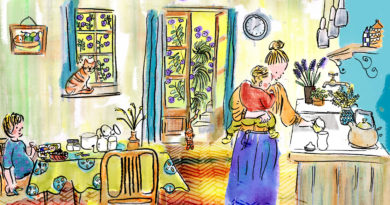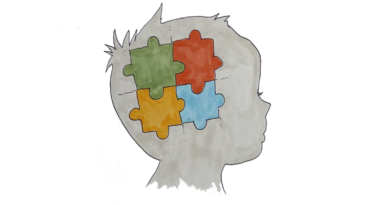Breastfeeding: A Big Adventure

Giving birth can be a huge adventure. Does it follow that breastfeeding is the next big adventure? Sure, your baby came out of your body, but will milk really come from your breasts? Breastfeeding may seem more like a mystery or a miracle than an adventure at this point, but breastfeeding is how mankind and all other mammals have survived up to now. Yet today breastfeeding is no longer seen as necessary. There are alternatives, so why bother? Today we live and breathe technology; science documents and explains everything. There are no longer any mysteries about breastfeeding: you can read all about it on the Internet. But will it work for you?
Science cannot fully explain the bonding that comes through breastfeeding, the strong ties that bind mother and baby even when they are apart, or the messages and fuzzy feelings that pass between a mother and her baby when they are together. When a mother breastfeeds, her whole body is involved. With Baby’s cheek on Mother’s skin, nursing is like a full-body hug. The emotional connection created by these repeated full-body hugs is very strong.
No formula producer has yet been able to replicate mother’s milk, which changes during a feed, over the course of the day, and throughout the baby’s changing state of development, adapting to different needs and even producing more antibodies if the mother has been exposed to illness. The breastfeeding hormones also pass on to Dad, so that he is gentler, more protective, less impatient, and more understanding than he would be otherwise.
No amount of baby massage or exercise has the same effect upon a baby’s jaws and mouth, which develop correctly through the strong sucking. Sucking from a bottle nipple is just not the same.
Science proves that mother’s milk is the best possible nutrition for a baby, and clearly shows that breastfeeding helps set a good foundation for a whole lifetime. A host of benefits has been documented, from helping to prevent respiratory diseases and diarrhea in infancy, to preventing obesity, cancer, and diabetes later in life. Breastfeeding has been proven to improve the immune system over the whole lifetime. Do these facts make an impact on how we make our decisions about what to feed our babies?
Why doesn’t every mother take part in the Big Breastfeeding Adventure? After all, she has given herself up to having a baby. Why not continue in the same way?
Perhaps it is because of the world we live in today. Technology offers us instant solutions for most situations, making life easy for us and smoothing out the rough parts. Breastfeeding does not always come naturally. Mothers experience many difficulties; some make too much or too little milk. Babies might have a weak suck or a strong, painful suck; some babies put their tongues in the wrong places. There are babies who refuse to open their mouths wide enough and babies who are restless at the breast and cry frequently. Such difficulties are often considered insurmountable. And most mums today know from the outset that they will have to start work again soon anyway, so why bother getting breastfeeding established? How can anyone breastfeed in the office or on the production line? It takes time, patience, dedication and determination not only to start breastfeeding but also to persevere with it.
My own breastfeeding adventure started back in the 1960s, when bottle-feeding was the norm, there were few birth and breastfeeding preparation classes, and mums were simply expected to grin and bear it. I gave birth in a standard maternity home in the U.K. Hospital routines were strict, and you didn’t question or fight them. I was in an open ward with 16 other mothers. After breakfast, they brought our babies to us – rooming-in was unknown; babies slept in the night nursery. The nurse stood at the door and called out, “Where is the mum who is breastfeeding?” 16 pairs of eyes watched as she came to my bed with baby Elizabeth and then watched my clumsy and embarrassed efforts to breastfeed on my own.
When I finally left the hospital, I had bleeding, cracked nipples that were so painful that I could hardly walk. This was not the adventure I had expected! I was saved the next day by a social worker. “You are holding Baby all wrong,” she said; “You need cushions under the baby, behind your back, under your arm; and you need to relax.” We tried this and it worked! All I had needed was some friendly advice and support, both of which were sadly lacking in the maternity home.
If you are thinking of embarking on the Big Breastfeeding Adventure, take advantage of what La Leche League can offer: sympathetic advice, support, and the ability to make you feel confident and to help you really enjoy your baby. You can find our contacts on the Internet, can buy our lovely book, The Womanly Art of Breastfeeding; you can call us on the telephone, e-mail us, and come to our monthly meetings for informal discussions with like-minded mothers. Better still, invite us to join you wherever you meet with other mums. A word of support, a small change in positioning, or a reassurance that all is well are perhaps all that is needed to help you embark on your own Breastfeeding Adventure.
By Joanna Koch
Joanna is a La Leche League leader, a committed Granny to eight wonderful grandchildren, and proud to be a long-time member of the Mothering Matters Team.
La Leche League Switzerland meetings can be found here.
Illustration by Jen Bognar



